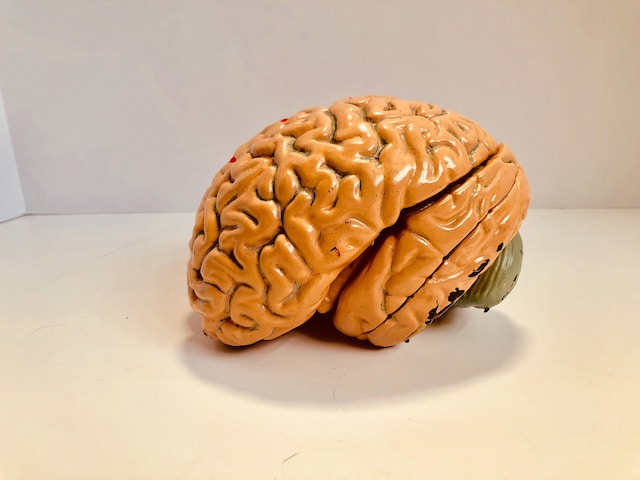Meditation is an ancient practice that has been used for thousands of years to enhance mental and physical well-being. It involves training the mind to focus on a particular object, thought, or activity to achieve a state of calmness and relaxation. Meditation has gained popularity in recent years due to its numerous benefits, including reducing stress, improving sleep, and promoting overall health. However, one of the most significant benefits of meditation is its ability to enhance brain performance. In this article, we will explore the science behind the benefits of meditation for brain performance.
Improved Cognitive Function
Cognitive function refers to the mental processes involved in learning, thinking, and problem-solving. Studies have shown that meditation can enhance cognitive function in various ways. For example, research has found that regular meditation practice can improve attention span, working memory, and decision-making abilities. One study published in the Journal of Cognitive Enhancement found that participants who underwent an eight-week mindfulness meditation training program showed significant improvements in working memory, cognitive flexibility, and the ability to sustain attention. Another study found that meditation can improve the brain’s ability to filter out distractions and focus on relevant information.
Increased Grey Matter Volume
Grey matter is part of the brain responsible for processing information and controlling sensory perception, muscle control, and decision-making. Several studies have found that regular meditation can increase the volume of grey matter in specific regions of the brain. For example, a study published in the journal Frontiers in Human Neuroscience found that eight weeks of mindfulness meditation increased grey matter volume in the prefrontal cortex, a region of the brain associated with self-awareness, decision-making, and executive control. Another study found that meditation can increase grey matter volume in the hippocampus, a region of the brain associated with learning and memory.
Reduced Stress and Anxiety
Stress and anxiety are common problems that can affect brain performance by impairing cognitive function and memory. Meditation has been shown to be an effective tool for reducing stress and anxiety. Several studies have found that regular meditation can decrease the activity of the amygdala, a part of the brain that plays a significant role in the body’s stress response. By reducing amygdala activity, meditation can help to reduce stress and anxiety levels, which can, in turn, improve brain performance.
Improved Sleep Quality
Sleep is essential for brain performance, as it is during sleep that the brain consolidates memories and processes information. However, many people struggle with sleep problems, which can impair brain function. Meditation has been shown to be an effective tool for improving sleep quality. Several studies have found that regular meditation can increase the production of melatonin, a hormone that regulates sleep-wake cycles. By increasing melatonin levels, meditation can improve sleep quality and enhance brain performance.
Increased Creativity
Creativity is an essential aspect of brain performance, as it involves the ability to think outside the box and come up with new and innovative ideas. Meditation has been shown to enhance creativity by increasing activity in the brain’s default mode network (DMN), a network of brain regions that is active when the mind is at rest. The DMN is involved in various cognitive processes, including creativity and problem-solving. By increasing DMN activity, meditation can enhance creativity and promote innovation.
Improved Emotional Regulation
Emotional regulation refers to the ability to control and regulate emotions. It is an essential aspect of brain performance, as it plays a significant role in decision-making and social interactions. Several studies have found that meditation can improve emotional regulation by increasing activity in the prefrontal cortex, a region of the brain associated with self-regulation and emotional control. By improving emotional regulation, meditation can enhance brain performance by enabling individuals to make better decisions and navigate social situations more effectively.
Conclusion
In conclusion, meditation is a powerful tool for enhancing brain performance. It can improve cognitive function, increase grey matter volume in specific regions of the brain, reduce stress and anxiety, improve sleep quality, increase creativity, and improve emotional regulation. These benefits are supported by numerous studies, and the evidence suggests that regular meditation practice can have long-lasting effects on brain performance.

One of the great things about meditation is that it is accessible to anyone, regardless of age or ability. You don’t need any special equipment or training to get started – all you need is a quiet space and a few minutes each day to focus on your breath or another object of your choice. There are many different types of meditation, so it’s important to find a technique that works for you. Some people prefer guided meditations, while others prefer to meditate in silence or use visualization techniques.
If you’re new to meditation, it’s a good idea to start with just a few minutes each day and gradually increase the duration as you become more comfortable. You can also try different techniques and see what works best for you. There are many resources available online, including apps and websites that offer guided meditations and other resources for beginners. If you found this article useful, you may also visit their page to read more about using brain supplements.
In addition to the benefits discussed in this article, meditation has many other potential benefits, including reducing symptoms of depression and anxiety, lowering blood pressure, and improving overall health and well-being. However, it’s important to note that meditation is not a substitute for medical treatment or professional therapy. If you are experiencing serious mental health issues or other health problems, it’s essential to seek the advice of a qualified healthcare provider.
In conclusion, meditation is a powerful tool for enhancing brain performance and promoting overall health and well-being. By incorporating meditation into your daily routine, you can reap the many benefits that this ancient practice has to offer. Whether you’re looking to improve your cognitive function, reduce stress and anxiety, or enhance your creativity and emotional regulation, meditation can be an effective tool for achieving your goals. So why not give it a try and see what benefits it can bring to your life?






















